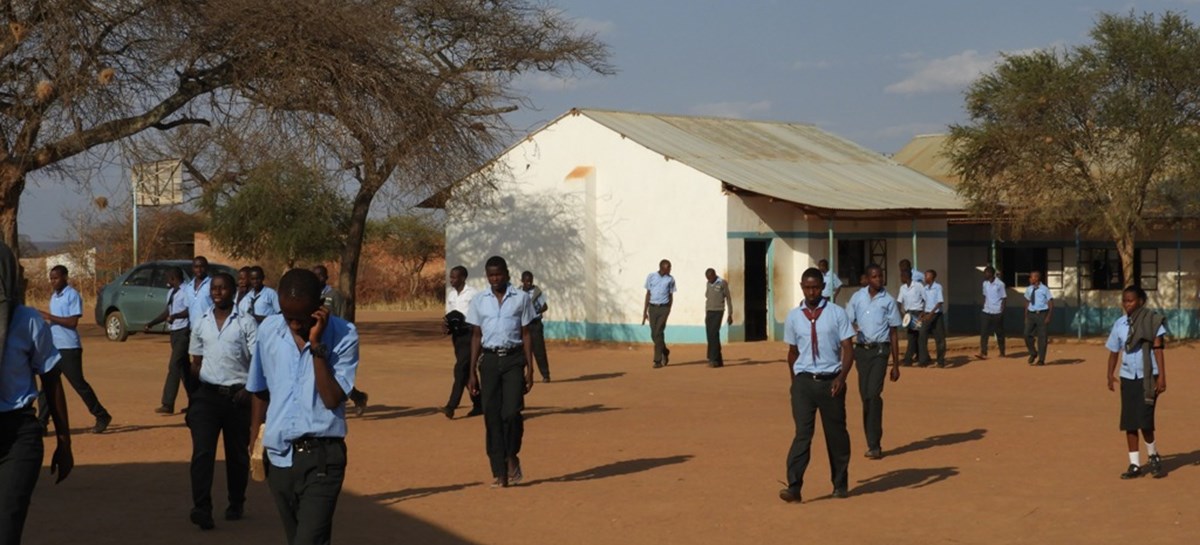
On the Student of the Future
How well do we know our student of the future?
This student will be born into an information society. They most likely will Google and Uber their way into first day at school, learn through virtual reality, and parents might have to call into the classroom than actually make plans for a school run.
Not only will the student have more study options, their needs and wants from an education system will be shaped by and shape the marketisation and the privatisation of education and learning. They will be both knowledge creators and recipients.
In rigid education systems, teachers will struggle to catch up with tech-savvy learners and this could eventually result in a shift from formal education institutions to alternative learning platforms to fit the future student. Self-teaching platforms will become more prevalent allowing the student to learn at their own pace, and whatever they wish, and alongside other life commitments. This will eliminate the experience of normative school discipline and introduce a new form of disciplining the student. It will also eliminative the traditional teacher-student relationship.
Amidst this, the student of the future will be also trapped between political instabilities and socio-economic uncertainties. To hustle in order to make ends meet will be the norm for this student’s everyday life. But this will not be news. Because most of their parents will have gone through such experiences, and most probably, some will have been socialised into a hustling life. The challenge will be whether they will have the resilience to deal with the challenges. The parents of future students will hold perhaps a gig job or a side-hustle alongside another type of work. In their lifetime, they might not have been formally employed. And they might have used their educational qualifications in alternative ways other than the expected career projection. The student will already be socialised into an uncertain present and future.
Even before they can enrol into school, students will be aware of the growing yet jobless economy. Their aspirations might be to create jobs rather than find employment. The conversations will shift from finding a job to finding work that can earn some forms of capital. It is almost obvious they will not question which job; but rather, how much money or what capitals to be earned? Potentially, a moral economy will be jeopardised by the exacerbating economic uncertainties. Notions of work ethics and dignity of work will be challenged by the changing nature of work.
The student will struggle with identity: who they are and what they ought to do in society. They will struggle with who and whether they have a voice, and in what contexts they will be listened to. The dominant narratives of who a student ought to be will affect their agency. Inclusion of the student in key decisions is unknown, yet critical because it might be compromised as teaching and learning platforms change. Diversity will be key, but in some cases, it might reinforce ‘otherness’ and result into conflicts. Society norms will be challenged and some refashioned to the everyday needs of the student. The student of the future will be a student of the world, having perhaps crossed multiple borders on their school journey e.g. as an immigrant, a refugee, having multiple nationalities, enrolling into online school etc. Intersectionality will be the norm rather than the exception.
Yet, and importantly, the student’s well-being will become a top priority. Emotional health. Social welfare. Conducive learning environment. Etc. But this will only succeed if it attracts the necessary political will and the necessary investments from the publics.
These ideals could exist in the future with the right actors collaborating to design such a future for education and learning. However, for some countries, there is little guarantee that they will leapfrog into such a future. These include countries still struggling to enrol and retain the girl child in school and where cultural norms limit the extent to which certain peoples access education. Technological advancements that are not integrated into education systems will become redundant as they don’t create work opportunities and at the same time, don’t help develop a generation with the skills set for technological innovation.
Furthermore, countries living below the poverty line might have other priorities than re-imagining the student of the future. They will be more concerned with feeding the hungry, providing basic services such as water, sanitation, health over re-imagining education. Inequality is a limitation to the student of the future. While some countries are already living with this future student, many others are yet to overcome the structural challenges that limit children from making it to and remaining in school in the first place. As such designing for a student of the future requires a system thinking approach enabling us to address the existing complex challenges that would limit us from seeing the bigger picture of the future of learning.
Blog Image: High school students in Eastern Kenya. Photo Credit: Caroline Njoki
Grace Mwaura (Kenya & St. Hilda’s 2011) is currently a Programme Associate with Climate Interactive and a non-residential Research Fellow with African Centre for Technology Studies (ACTS). She completed a DPhil in Geography and the Environment at Oxford on the subject of greening youth livelihoods in contemporary Africa.